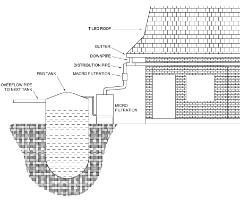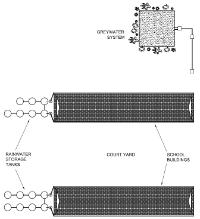University project helps to solve water problems in Cambodia
Published on 27 November, 2008
A clever and holistic approach to providing a sustainable water supply to a Cambodian school has put the spotlight on 3 first-year engineering students from Central Queensland...
CQUniversity students Jamie Meyer, Michael Allen and Phillip Thelan have been selected as 1 of 6 outstanding teams in the EWB (Engineers Without Borders) Challenge, which this year attracted 6668 entrants from 26 universities.

Every team had the opportunity to make an important contribution towards EWB's work with RDIC (Resource Development International Cambodia) and rural communities in Kandal Province, Cambodia.
"What was outstanding about the CQUniversity team's design was their focus on a holistic approach to the issue of water supply, storage and treatment for a Cambodian school," EWB Challenge National Coordinator Anh Tran said.
"An extensive research of technologies was undertaken that resulted in a socially, environmentally, economically and culturally appropriate design which incorporated health education and design maintenance as key elements in working with the school community."
As mature age distance students who conferred on the project online, by phone and by brief meetings, the trio's work on the project was challenging but rewarding.
"I believe the EWB Challenge was a good experience because you get the opportunity to design solutions for real world problems. I think being all mature aged students we were focused and committed to providing a viable solution and drew upon our combined experiences," Mr Meyer said.
 With the CQUniversity students all having children of their own, it was a driving motivation behind the proposed system.
With the CQUniversity students all having children of their own, it was a driving motivation behind the proposed system.
"The thought of our own children not having the ability to access clean drinking water and safe sanitation methods is quite sobering," Mr Allen said.
The team's proposal, which attends to the supply and re-use of water for a school of 1000 persons within the Kandal Province of Cambodia, included concepts of rainwater collection, filtration of roof water for drinking, an additional filtration system for cooking and cleaning, water storage, rainwater distribution and re-use of wastewater.
It also dealt with the education of the school community in relation to water collection and re-use.
As the most outstanding and innovative ideas generated from the EWB Challenge are communicated directly back to RDIC to inform current and future projects, it is likely the CQUniversity students may see their work in action in Cambodia in the near future.
The students next week will present their projects at 2008 EWB Challenge Presentations and Awards Ceremony and Conference in Melbourne where final judging will take place for the 2008 EWB Challenge Champion team.

